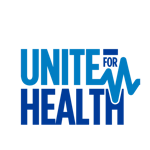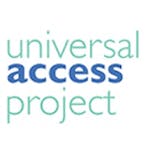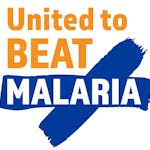Pollution from cooking fuels kills up to 4 million people each year. In Nepal female volunteers go door to door to check in on people’s well-being and encourage cleaner cooking. But COVID-19 prevents home visits, and makes it harder to protect a family’s health. When we #UniteforHealth, we help all families live healthier lifestyles.
On a typical day, Bhetwal Saraswoti is awake by 5 a.m. She spends the early hours working in her fields in central Nepal, feeding her cattle and making breakfast for her family — all before starting her second job as a Female Community Health Volunteer (FCHV).
FCHVs have been familiar figures in Nepal since 1988 when women started volunteering their time to provide basic health care and health information to villages across the country. Lately, they have taken on a new issue: clean cooking.
The volunteers usually visit homes to monitor blood pressure and blood oxygen levels; now they also encourage people to switch to using clean cooking fuels by discussing the health, economic, and lifestyle benefits for the family and community. Encouraging people to change decades-old customs is hard, but the health effects of cooking with traditional fuels like wood and kerosene, with an open flame in a small space, are clear.
“The ceiling [of a home] becomes blackened, as are the women’s lungs,” says Dewti Sapkota, another volunteer in the FCHV program. “This also increases blood pressure and may lead to pneumonia.”
Dirty fuels are still used by millions of people around the world, and they contribute to the premature deaths of up to 4 million people each year because they generate high levels of air pollution inside people’s homes, causing a range of heart and lung illnesses. Making sure people understand the link between household air pollution and their overall health saves lives.
THE INTERSECTION BETWEEN FOOD AND HEALTH
Across the world, cooking is a deeply personal and cultural activity that connects families and communities. It can take a trained and trusted member of the community, like a Female Community Health Volunteer, to really make the connection for people and help them switch to cleaner, healthier cooking fuels.
“I feel honored when community people come to consult me about their health,” says Bhetwal Saraswoti. “[I] feel proud that I am able to provide service to the community.”
FCHVs started discussing cooking fuels in their home visits in a pilot program starting in 2018. Since then they report that many families in their communities have become more receptive to switching to biogas, liquefied petroleum gas, and electric cookstoves. Several husbands of the volunteers have even begun to help cook at home to support their wives’ involvement in the project.
The IMPACT OF COVID-19
As with many other critical community health services, COVID-19 has made it difficult for FCHVs to do their work. Lockdown orders hamper their check-ins on community members’ well-being, and economic downturns may lead to the increased use of cheaper, and more toxic, forms of fuel for indoor cooking, threatening to undo progress made.
The global pandemic has shown us not only that no community is safe from a public health crisis, but that it’s making inequality worse, by taking its heaviest toll on people already marginalized. It’s also highlighting how issues — and people — are fundamentally interconnected. In their own way, volunteers like Bhetwal Saraswoti are on the frontlines of fighting against the pandemic, helping to protect progress already made, and giving their communities a healthier lifestyle.
We are all safer and stronger when we #UniteforHealth. Support the UN Foundation’s work to deliver health for all.
Thanks to the Clean Cooking Alliance for contributing this story.




 View All Blog Posts
View All Blog Posts

